- John Goodman
- Larry Kotlikoff
- Jane Shaw Stroup
- Thomas Saving
- Devon Herrick
- Linda Gorman
- Pete Du Pont
- All Posts

Obamacare’s Dirty Little Secret
When Democrats passed the Affordable Care Act of 2010, President Obama and lawmakers made the same claim over and over: The act would make good, affordable health insurance available to people with pre-existing conditions. The actual result has been the opposite. Obamacare makes health insurance as good as possible for the healthy and as bad as possible for the sick.
From John Goodman’s editorial in the Wall Street Journal (Paid gateway)

Can the Left and Right Agree on Health Reform?
A new book calls for universal health insurance coverage, but with no increase in government spending. It’s getting a lot of attention in progressive circles. Yet a bill that would go a long way toward implementing Finkelstein’s proposal has been introduced in Congress by a conservative Republican. More

Who Are the Real Authoritarians?
If the Trump presidency meant anything, it meant less government. Specifically, lower taxes, less regulation, and fewer (potentially war-causing) foreign entanglements. Typical Trump supporters are also anti-government – even more than Trump is. More
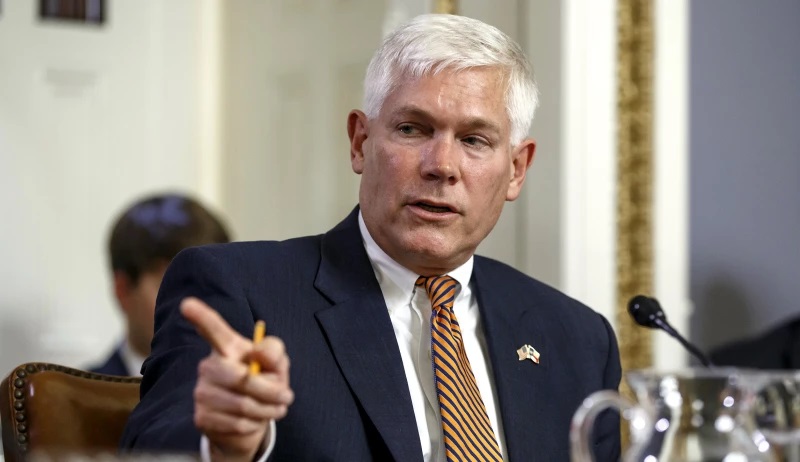
A Republican Alternative to Medicare for All
It’s been 15 years since John McCain ran for president with a plan to completely revamp our healthcare system. In the interim, Republicans have attempted a nip here or a tuck there, but nothing really big. Fortunately, Rep. Pete Sessions (R-TX) and his colleagues have come to the rescue with a reform plan that is a pro-patient, pro-family, pro-free enterprise alternative. It is based on three fundamental values. More

Against Medicaid Expansion
Expanding Medicaid to the relatively healthy might make sense if it improved general health. But there is little evidence it does. In Oregon, for example, a first-of-its-kind controlled trial tracked individuals who applied for Medicaid through a lottery. After two years, there was no discernible difference in the physical health of the winners and losers. More

Liberating the Doctors
For the past half century, virtually every major attempt to reform the health care system has involved people who don’t practice medicine telling the doctors who do practice medicine how to manage their affairs. Yet none of these solutions appears to work. Costs keep rising. Quality of care is not measurably improving. And, access to care (as measured, say, by per-capita doctor visits or the length of time needed to see a doctor) seems to be getting worse. So why not try something different? Why not allow the folks who practice medicine and who are in the best position to eliminate waste, improve quality and expand access to care to solve the very problems no one else seems able to solve? More

It’s Time to Retire the Labor Law
The emergence of Uber and similar ride services and the pandemic-induced phenomenon of working from home are radically changing the nature of work. The idea of “an hour of work” for a single employer is increasingly a meaningless concept. But without that metric, you can’t make sense of “minimum hourly pay” or “overtime” and other features of 85-year-old labor law. Moreover, millions of people no longer want to be traditional “employees.” To facilitate that desire, we need to let independent contractors have all the tax advantages employees have with respect to health insurance, retirement pensions and other benefits. More.
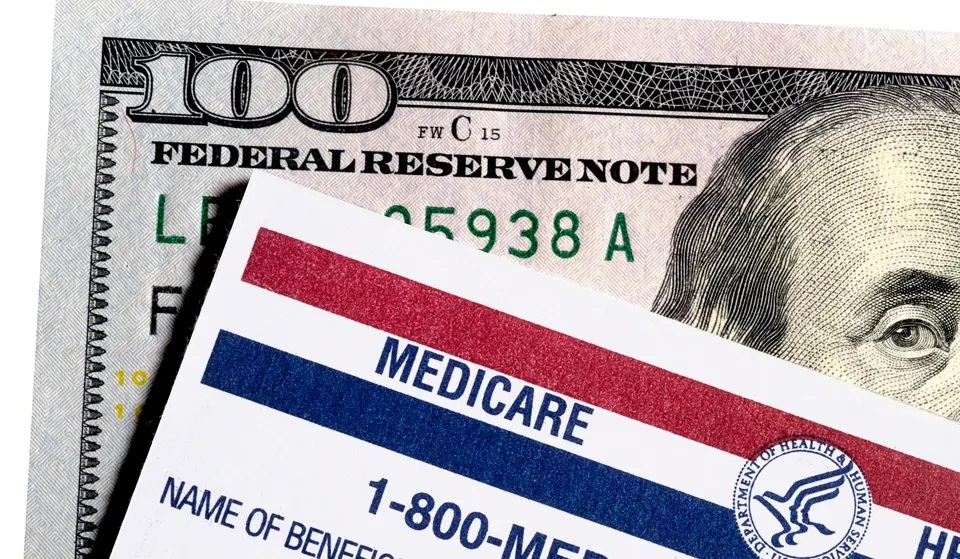
Medicare’s Future
In just eight years, nearly 78 million Medicare beneficiaries will face an automatic 11 percent payment cut in their hospital insurance benefits, and these cuts could come even sooner and strike even deeper if America is hit by a recession. More

Biden v. Medicare Advantage
When does the failure to answer a phone call in 8 seconds cost the company receiving the call $190 million? When the caller is a spy working for the agency that runs Medicare and the receiving entity is a private insurance company. More.

Two Cheers for the Bipartisan Tax Deal
A rare bipartisan agreement in Congress would create a larger child tax credit for parents and extend some key business tax breaks in the 2017 (Trump) tax reform bill that have expired. Democrats are said to favor the former and Republicans the latter.
Opinions on the accord are all over the map, with pros and cons – both on the right and the left. I give it two cheers. If it were funded by reducing means-tested welfare spending, I would give it a third cheer.

How to Reform Social Security
The key to reform is to make today’s retirees positive beneficiaries of reform.
A golden opportunity to do so exists for two reasons: (1) the current system is abusing senior retirees in myriad ways, and (2) many of these abuses can be eliminated without any cost to the Treasury. In other words, some aspects of responsible reform are a free lunch.
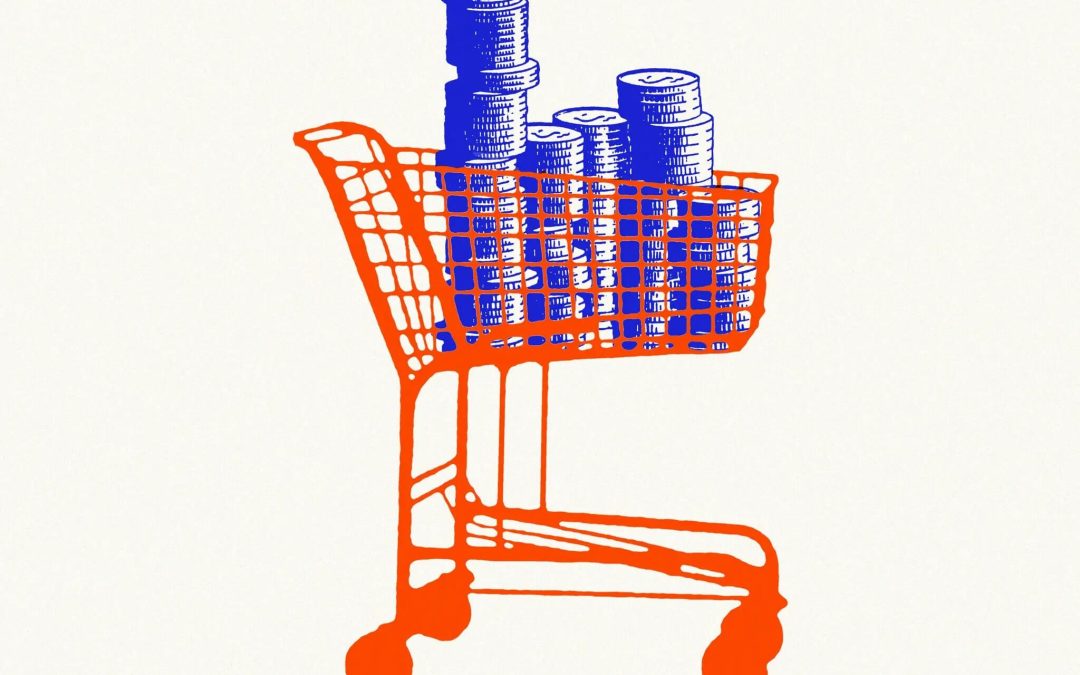
Inequality has been Greatly Exaggerated
A new study by Goodman Institute Senior Fellow Laurence Kotlikoff and his colleagues says that middle-aged families in the top fifth of the income distribution have almost 200 times the wealth of families in the bottom fifth. But after taxes and entitlement transfers, the difference in lifetime spending power is only 7.5 to 1. Our fiscal system is far more progressive than critics like to admit. See the New York Times description and the technical paper.

We’re Not Saving Enough
Americans don’t save enough, either individually or collectively. Yet by looking at the wrong data, many journalists and even top economists are claiming we’re experiencing a “savings glut.” This is hogwash. It’s time to talk turkey about U.S. saving and for journalists and professionals to either do their homework or hold their pens. More

How Congress Can Help Protect Us from Inflation
The inflation rate is the highest it’s been in 40 years. Congress can’t change that. But there are six things it can do to help all of us weather inflation, beginning with full inflation indexing of the tax code.

Could We Talk Ourselves into A Recession?
Congress should take this opportunity to make the tax system fully inflation-neutral. But neither inflation nor the Fed’s minor rate hikes will kill the economy. Nor will Putin’s war, which is stimulating the defense industry. Nor will ongoing slowdowns in Chinese production, which is stimulating home production. What can kill the economy is enough people, who should know better, talking it down.

Is Social Security Sexist?
Theft is a strong word. So, take it from Social Security’s own Inspector General (IG), whose 2018 report estimates that Social Security wrongfully deprived over 13,000 widows and widowers of $132 million and counting! More

Protecting Seniors from Inflation
Congress should do three things: (1) index the Social Security benefits tax, (2) let inflation indexed government bonds also index against inflation-induced higher taxes, and (3) let people exchange their non-indexed pensions for an inflation-indexed alternatives. More.
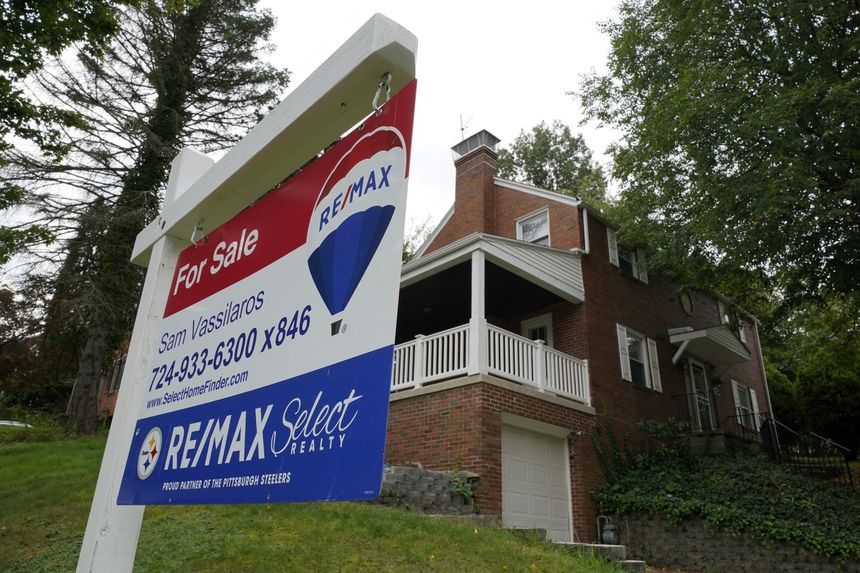
Your Home is a Great Hedge Against Inflation
Buy now. Houses, like most physical assets, retain their real value during high inflation and have done far better than most such assets. Plus, if you buy a primary residence now and home prices fall, you won’t be affected unless you need to sell. As long as you have a stable job, can manage your mortgage, and don’t need to move anytime soon, a short-term drop in housing prices isn’t a concern.

Why “Testing to Treat” for Covid Isn’t Working
We now have wonderful new drugs to treat COVID. Paxlovid, produced by Pfizer, is an example. But half of these medications aren’t being prescribed. Indeed, many go to waste, sitting on the shelves of pharmacies until their expiration dates. More…

House Republicans – Raise the Debt Limit, But Stick to Your Fiscal Guns. Our Country Is Dead Broke!
Our country’s fiscal gap is 7.7 percent of GDP. This means we need to collect 7.7 percent more in taxes, every year starting now, to cover all the future spending the CBO projects. Alternatively, we need to immediately and permanently lower the path of federal spending by 7.7 percent of each future year’s GDP. Or we can do neither of these things and dig an even deeper hole for our kids. More

Social Security’s Massive Malfeasance
The Social Security administration has committed and continues to commit huge fraud against 13,000 plus widow(er)s who collectively have been swindled out of $130 million. These figures are those of Social Security’s own Inspector General. More
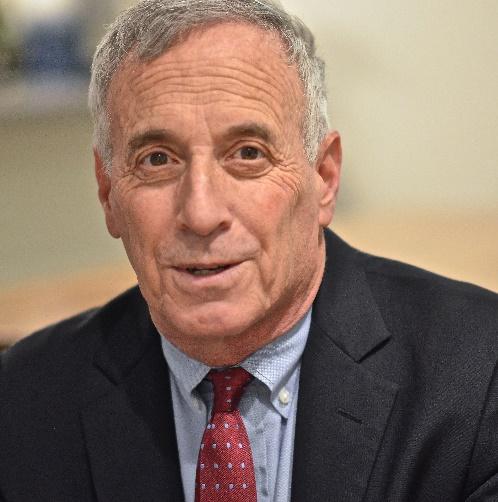
Our Fiscal System Needs Reform
Over half of working-age Americans face lifetime marginal tax rates (including direct taxes and loss of entitlement benefits) above 43 percent. One in ten in the bottom fifth face tax rates above 70 percent, effectively locking them into poverty. For some would-be-workers, the tax rates exceed 100 percent.
Extremely high LMTRs reflect the complete loss of family benefits, in the current and future years, from programs such as Medicaid – which ends benefits abruptly if one’s income or assets exceed specific thresholds by even one dollar. More.
No Results Found
The page you requested could not be found. Try refining your search, or use the navigation above to locate the post.
No Results Found
The page you requested could not be found. Try refining your search, or use the navigation above to locate the post.

Should We Even Try to Recycle Plastics?
Pressuring plastic producers to recycle their products has gone on for decades. But two writers at the Atlantic have now concluded, “Plastic recycling does not work and will never work.” In the U.S. in 2021 only 5 percent of all post-consumer plastic was recycled. Furthermore, they say that the plastic producers deny this and those denials are “reminiscent of” the tobacco companies in making false claims. (For years, many tobacco firms rejected the idea that cigarettes caused cancer.)

What’s Wrong with Planting More Trees?
Planting trees to sequester carbon and prevent carbon dioxide emissions has become very popular (whether it is accomplishing much or not). Now the New York Times reports that the effort to save the world is causing local ecological harm by bringing in non-native species.

Conservation Leases?
This guest post by Shawn Regan is a substantive analysis of the recent proposal by the Interior Department's Bureau of Land Management to allow leasing of public land for conservation purposes. Regan is vice president of research at the Property and Environment...
No Results Found
The page you requested could not be found. Try refining your search, or use the navigation above to locate the post.
No Results Found
The page you requested could not be found. Try refining your search, or use the navigation above to locate the post.

The Federal Reserve’s Accountability Deficit
The Federal Reserve enjoys extraordinary independence from the elected branches of government, based on the well-founded fear that politicians cannot be trusted with the power to print money and manipulate interest rates.

Goodman and Saving: Budget Deal’s Trillion Dollar Surprise
The most significant federal entitlement reform in our lifetime was a little noticed provision that Democrats included in the Affordable Care Act. The provision was a cap on Medicare spending, similar to the cap Republicans proposed for Medicaid last summer.
No Results Found
The page you requested could not be found. Try refining your search, or use the navigation above to locate the post.
No Results Found
The page you requested could not be found. Try refining your search, or use the navigation above to locate the post.

Herrick: Future Pandemics Require Better Access to Primary Care
When Americans become ill or have a health complaint, they often schedule an appointment with a primary care provider (PCP). PCPs are often the first line of defense in the battle against the onset of seasonal outbreaks of colds, flu or more serious problems like COVID-19.

Herrick: Could Free-Market Medicine Respond Better to Pandemics?
Many people have come to believe that the only way to protect Americans against future pandemics is to turn over control of our health care system to the government. The folly of this view was apparent when the U.S. Centers for Disease Control & Prevention (CDC) utterly failed as the monopoly supplier of COVID-19 diagnostic testing kits. When the first cases appeared, about half of the test kits failed and replacements were slow in coming.

Health Reform: There Is Something for Everyone to Love… and Hate
Why is it controversial to expand the physician supply, creating more competition? Doctors oppose it, just like they oppose expanding the scope of practice for nurse practitioners. Doctors don’t want me to be able to see a nurse practitioner or physician assistant for a wart on my toe unless that NP/PA works for them.
How did doctors get so powerful? In the first half of the 20th Century, the American Medical Association (AMA) waged a largely successful battle to close medical schools that trained competing physicians. …. More than half of American and Canadian medical schools were closed…. Thus, the job of a physician was yanked out of reach of all but the smartest, most disciplined, wealthy elites.

Gorman: We can cover those with pre-existing conditions without Obamacare
There are many ways to provide medical care for people with pre-existing conditions. Real world experience shows that some work better than others. Properly structured stand-alone high risk pools and medically underwritten individual health policies guaranteed coverage for more than a decade before ObamaCare.

Individual Insurance Buyers Were Better Off Without Obamacare
Obamacare’s destruction of the individual health insurance market has done enormous damage to the lives and finances of millions of people who purchase their own insurance.
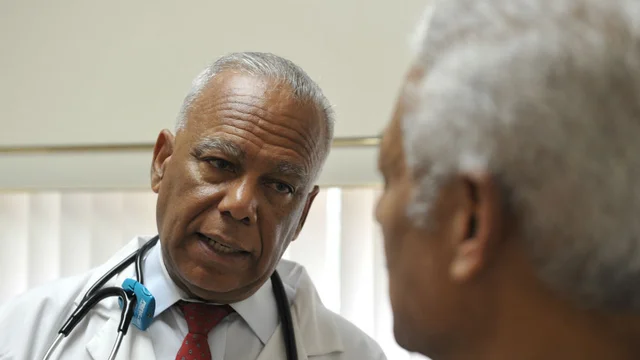
ObamaCare has Failed Patients with Pre-Existing Conditions
There are many ways to provide medical care for people with pre-existing conditions. Real world experience shows that some work better than others.

ObamaCare has failed patients with pre-existing conditions
There are many ways to provide medical care for people with pre-existing conditions. Real world experience shows that some work better than others.
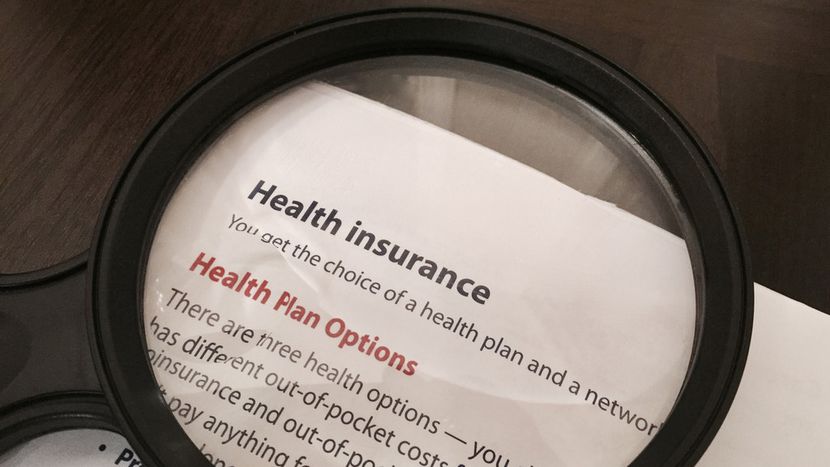
Does Lack Of Health Insurance Kill?
The Republican health plan will kill people,” says Bernie Sanders. “The Republican Party is the party of death,” says the headline at Political dig.

Gorman at Forbes: Risk Pools Work Better Than Obamacare
Risk pools were not perfect. But they worked much better than the individual market today. Prior to Obamacare, for example, premiums tended to be less than half of current ones, networks were large, and carriers offered such a variety of policies that there was something available to fit most family budgets.
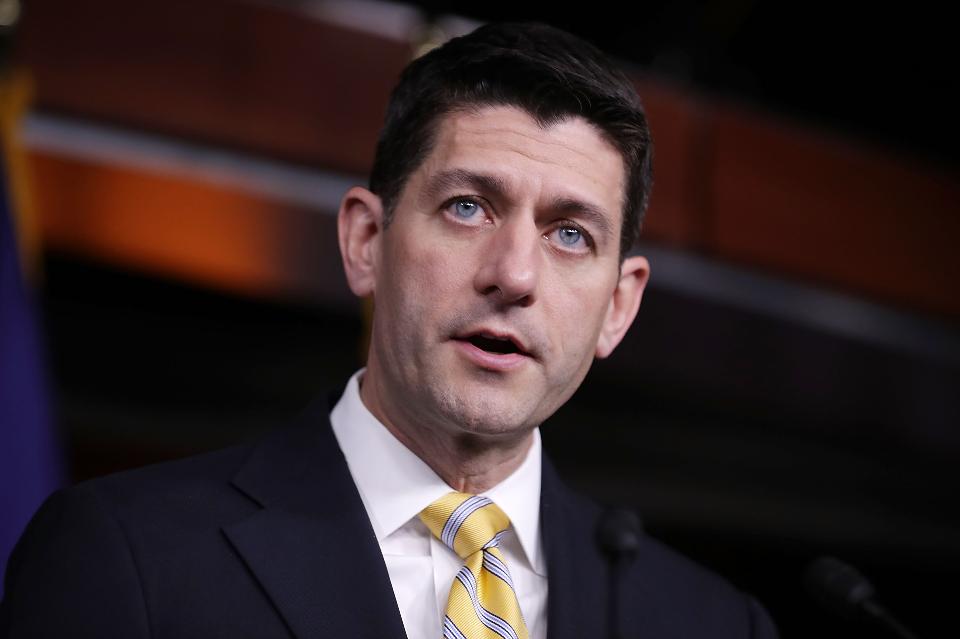
Why the Republican Version of ObamaCare is a Sham
The people who crafted the Republican ObamaCare reform bill seem to want to help. They promise other reforms will be coming. Trust us, they say, we’re from the (new) government, and we’re here to help.
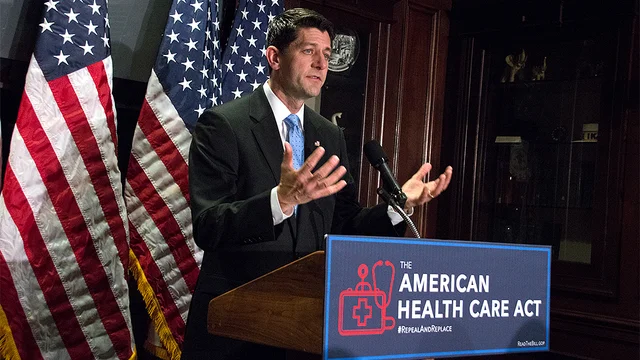
Why the Republican version of ObamaCare is a sham
The people who crafted the Republican ObamaCare reform bill seem to want to help. They promise other reforms will be coming. Trust us, they say, we’re from the (new) government, and we’re here to help.

Linda Gorman Study: Obamacare Dollars Wasted
The percent of the population with private health insurance actually declined during the eight years of the Obama presidency, according to a study by health economist Linda Gorman.

Gorman: Obamacare has been extremely wasteful
The federal government spent $341 billion from 2014 through 2016 on subsidizing individual coverage so that people would buy it (Not counting the money spent on state and federal exchanges).

The $3.5T Spending Mistake
Congressional Democrats are proposing to spend an enormous amount of taxpayer dollars on what the New York Times calls a “cradle to the grave” addition to U.S. social welfare. When budgeting shenanigans are ignored, the Committee for a Responsible Federal Budget estimates that the full cost is not the $3.5 trillion that has been widely advertised, but at least $5.0 trillion and possibly as much as $5.5 trillion.

Focus on Fundamentals
The current economic debate is an exercise in missing the point. Commentary by Pete du Pont December 30, 2012 Source: Wall Street Journal "If we're going to raise revenue and if we're going to raise it in any form, then we darn well better cut spending, because...

Hello, Europe
On its current trajectory, America will look like France or Greece before long. Commentary by Pete du Pont November 22, 2012 Source: Wall Street Journal The election is behind us, with President Obama's strong victory over Mitt Romney. Mr. Obama did not do as well...

Will America Abandon ‘Hope’?
As the election approaches, most voters think the country is on the wrong track. Commentary by Pete du Pont July 29, 2012 Source: The Wall Street Journal The presidential campaign remains very close, but some of the polling information must continue to cause alarm in...

Class Struggle
On education, there are big differences between Obama and Romney. Commentary by Pete du Pont June 27, 2012 Source: The Wall Street Journal Much has been written about the choice we face just 19 weeks from now, when we will select the next president. But while we...

Four More Years?
If you think the first Obama term has been bad, just wait. Commentary by Pete du Pont May 28, 2012 Source: The Wall Street Journal Before being elected in 2008, Barack Obama said: "We are five days away from fundamentally transforming the United States of America."...

A Choice, Not an Echo
There are big differences between Barack Obama and Mitt Romney Commentary by Pete du Pont April 29, 2012 Source: The Wall Street Journal As the presidential election is just over six months away and both parties have chosen their candidates, the campaign is now fully...

The Anti-Energy President
He really meant it when he said prices would "skyrocket." Commentary by Pete du Pont March 29, 2012 Source: The Wall Street Journal Our America today is very different from the America of some years ago. Government spending is greatly increased, as is the regulation...

The Pros and Cons of Hillary
Why she might want to run for vice president—and why she might not. Commentary by Pete du Pont January 31, 2012 Source: The Wall Street Journal "Look, it's the one thing, I think, that the Democrats could do to nearly guarantee Obama re-election," Bill Keller of the...

Obama’s Foreign Failure
The world hasn't lived up to his Pollyannaish expectations. Commentary by Pete du Pont August 27, 2013 Source: The Wall Street Journal Barack Obama entered the White House with the promise of restoring our nation's standing in the world. Suffering from war fatigue and...

Second-Term Nightmare
ObamaCare's chickens come home to roost. Commentary by Pete du Pont July 27, 2013 Source: The Wall Street Journal Talk about being between a rock and a hard place. The Obama administration and its allies in Congress are faced with the challenge of trying to convince...

Our Gravest Peril
ObamaCare? Stagnant economy? Crushing debt? Foreign policy fecklessness may trump them all. Commentary by Pete du Pont January 21, 2014 Source: Wall Street Journal America's most worrisome problem may not be the failed takeover of our healthcare system. It may not be...

Our Tattered Health Care Safety Net
We are probably as close to universal health insurance as we are ever likely to be. Yet we are doing a poor job of delivering care to families at the bottom of the income ladder. These families find that as their income goes up and down and as their job opportunities ebb and flow, they bounce back and forth among eligibility for Medicaid, eligibility for subsidized insurance in the Obamacare exchanges, eligibility for employer-provided coverage and sometimes eligible for none of the above. More.

Julian Simon, Vindicated Again
Each year, the Competitive Enterprise Institute (CEI) has a dinner in Washington, D.C., honoring the economist Julian Simon, who died in 1998. Simon was a rare optimist in the fields of population and natural resources. He disagreed with most environmentalists of his day (especially in the 1980s through 1990s). They feared passionately that growing population would overwhelm agriculture and industry and that the world would run out of natural resources such as oil and minerals.

What Companies Using AI Need To Know About The Sam Altman Reshuffle
Turmoil is rocking the artificial intelligence industry. Business leaders developing an AI strategy should—in most but not all cases—continue as before the recent big news.
The board of OpenAI fired Sam Altman as CEO on November 17, and the company’s president, Greg Brockman, resigned soon after. Three days later, Microsoft announced, “Sam Altman and Greg Brockman, together with colleagues, will be joining Microsoft MSFT -1.2% to lead a new advanced AI research team.”
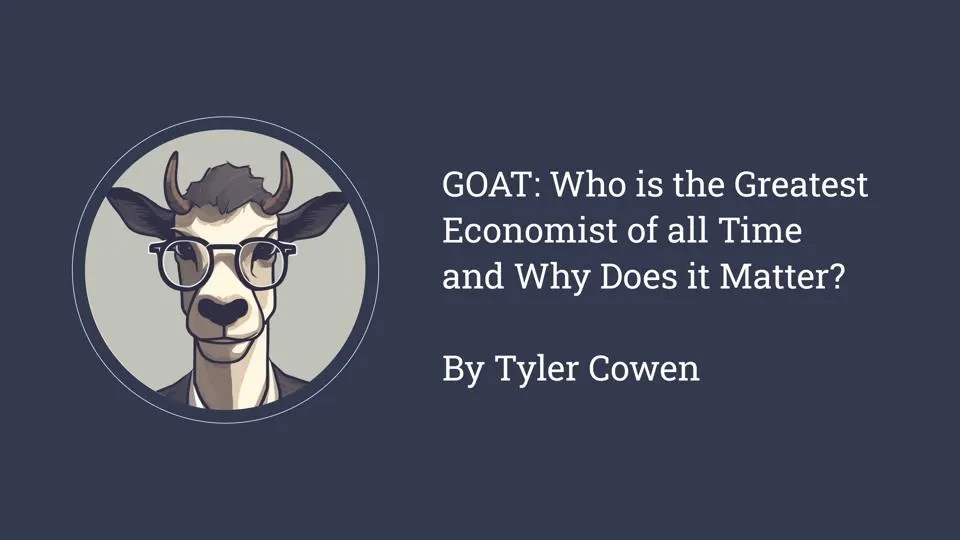
Tyler Cowen Searches For Economics GOAT In New Book
GOAT: Who is the Greatest Economist of all Time and Why Does it Matter? is an intriguing book by the well-known economist Tyler Cowen in which he tries to determine who is the greatest economist of all time. This book will be enjoyed not only by economists but also those interested in understanding the world of people and their interactions. Importantly, the book emphasizes the non-financial implications of economic analysis in areas such as friendship, community and aesthetics.

Real Estate Agents After Fixed Commissions
Image Caption: Real estate agents arrive at a brokers tour. (Photo by Justin Sullivan/Getty Images) GETTY IMAGES Read the original article on Forbes.com Real estate agents have been slapped with a court ruling that their commission practices violate antitrust...
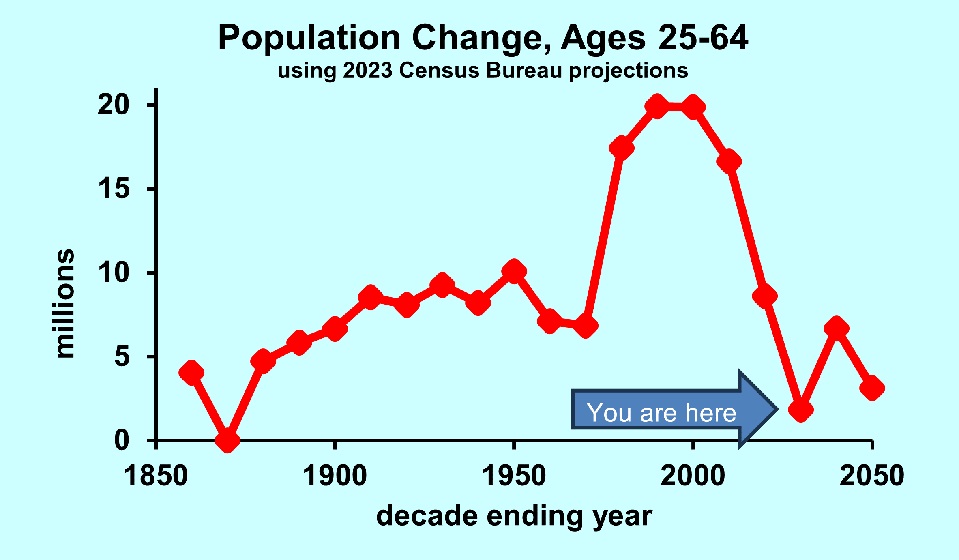
New Census Projections Show Tight U.S. Labor Market For Years
The U.S. Census Bureau issued new long-term population projections which are gloomy for employers. The growth of the working age population in the current decade, from 2020 to 2030, will be the lowest since the Civil War. These projections indicate even less labor force growth than the previous figures, which were released in 2018. Lower immigration than previously expected dominates the labor force issue. The Census Bureau believes immigration in future years will be about 17% lower than they previously projected—which itself was lower than 2014 projections.
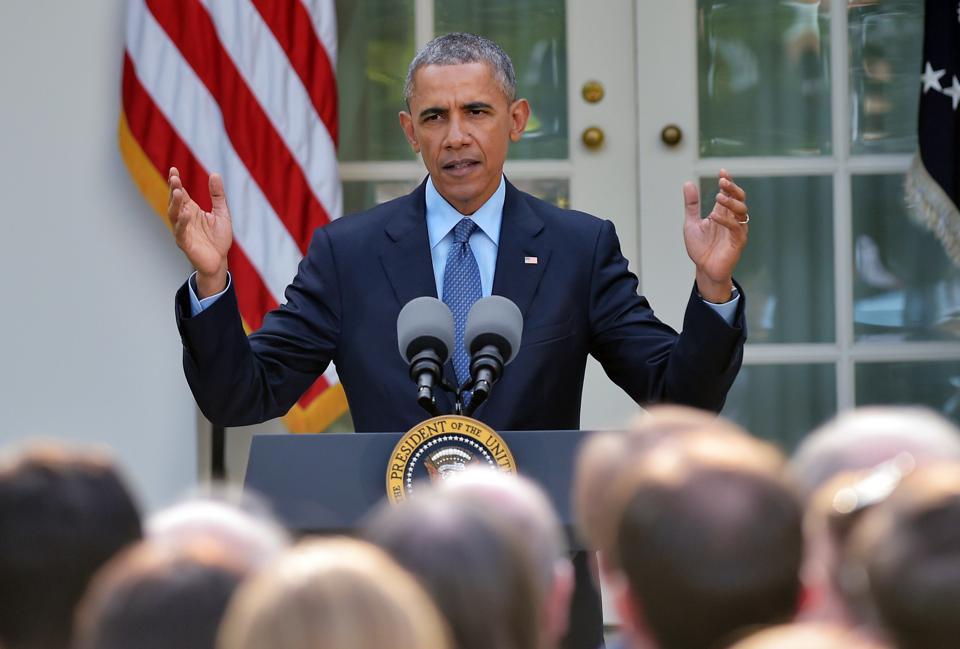
ObamaCare Turns Out to Be Affordable Only for the Healthy
It was supposed to help those with pre-existing conditions, but they pay dearly for bad options.

Obamacare’s Dirty Little Secret
When Democrats passed the Affordable Care Act of 2010, President Obama and lawmakers made the same claim over and over: The act would make good, affordable health insurance available to people with pre-existing conditions. The actual result has been the opposite. Obamacare makes health insurance as good as possible for the healthy and as bad as possible for the sick.
From John Goodman’s editorial in the Wall Street Journal (Paid gateway)

What To Do About Our Biggest Health Care Problems
Short-term health insurance and indemnity insurance are meeting needs not met by Obamacare. You would appreciate why that is a good thing if you understand:
Goodman’s Rule for Rational Public Policy: Let the markets handle all the problems markets can solve; and turn to government only to meet needs that competitive markets cannot or do not meet.

Biden v. Medicare Advantage
When does the failure to answer a phone call in 8 seconds cost the company receiving the call $190 million? When the caller is a spy working for the agency that runs Medicare and the receiving entity is a private insurance company. More.

How to Reform Social Security
The key to reform is to make today’s retirees positive beneficiaries of reform.
A golden opportunity to do so exists for two reasons: (1) the current system is abusing senior retirees in myriad ways, and (2) many of these abuses can be eliminated without any cost to the Treasury. In other words, some aspects of responsible reform are a free lunch.